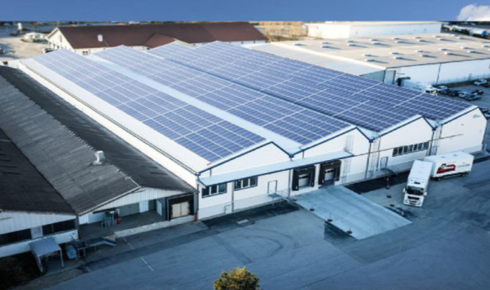In today’s fast-paced world, industries and households are constantly seeking energy-efficient and eco-friendly alternatives to traditional power sources. One of the most impactful innovations in renewable energy is the solar water heating system, which utilizes the power of the sun to provide hot water for various applications. When combined with solar industrial solutions, this technology plays a significant role in reducing carbon emissions, minimizing operational costs, and supporting a greener planet.
Understanding Solar Water Heating Systems
A solar water heating system (SWHS) harnesses solar energy to heat water using solar collectors, a storage tank, and a circulation system. These systems are highly efficient and can be used in both domestic and industrial settings. The basic principle involves absorbing sunlight through solar collectors—usually flat plate collectors or evacuated tube collectors—and transferring the heat to water stored in insulated tanks.
Unlike traditional electric or gas-powered water heaters, solar water heaters rely solely on renewable energy, making them cost-effective and environmentally friendly. They can provide up to 80% of the hot water requirements throughout the year, significantly cutting down electricity or fuel bills.
The Growing Role of Solar Energy in Industries
Industries are among the largest consumers of energy worldwide. From manufacturing to food processing, energy-intensive operations demand constant heating, cooling, and power supply. This is where Solar industrial solutions come into play. By integrating solar power into their processes, industries can drastically reduce dependency on fossil fuels, improve efficiency, and achieve long-term sustainability goals.
Solar technologies are now being used for multiple industrial applications such as:
- Water and space heating
- Process heating for manufacturing units
- Preheating boiler feed water
- Steam generation
- Powering industrial machinery
These solar-powered processes not only lower energy costs but also help organizations comply with environmental regulations and corporate sustainability standards.
Benefits of Installing Solar Water Heating Systems
Adopting solar water heating technology offers numerous benefits for both households and industries. Let’s explore the most significant ones:
- Cost Savings: Solar water heaters reduce electricity and fuel consumption, leading to significant savings on energy bills.
- Low Maintenance: Once installed, these systems require minimal maintenance, making them a reliable long-term investment.
- Environmentally Friendly: Solar systems produce no greenhouse gases, making them a clean and sustainable alternative.
- Durability: High-quality solar water heating systems can last for more than 20 years with proper care.
- Government Incentives: Various government programs and subsidies make it easier for users to install solar water heaters at an affordable cost.
- Energy Independence: By relying on solar power, you reduce your dependence on non-renewable resources and grid-based electricity.
Industrial Applications of Solar Water Heating Systems
In industrial setups, hot water and steam are required for numerous purposes such as cleaning, sterilization, dyeing, and chemical processing. Solar water heating systems can easily cater to these needs. By integrating solar energy into production processes, industries can achieve operational efficiency while minimizing their carbon footprint.
Some common sectors using solar heating include:
- Food and Beverage Industry: For sterilization, pasteurization, and cleaning processes.
- Textile Industry: For dyeing and washing fabrics.
- Chemical and Pharmaceutical Plants: For controlled heating in manufacturing processes.
- Hospitality Industry: For providing hot water to hotels, resorts, and hospitals.
The initial investment in solar systems is quickly recovered through energy savings, making it a smart business decision for any industry.
Why Solar Energy is the Future of Industrial Growth
As energy costs rise and environmental awareness grows, industries are actively shifting toward renewable solutions. The combination of solar power with advanced technologies like automation and IoT (Internet of Things) is making solar integration more efficient and intelligent.
Moreover, with the Indian government promoting renewable energy adoption through initiatives like the National Solar Mission, solar-powered industries are receiving strong policy and financial support.
In the future, industrial plants are expected to operate as self-sufficient energy hubs powered entirely by solar energy. The integration of solar water heating systems will continue to expand, helping businesses meet sustainability goals and reduce operational expenses.
Choosing the Right Solar Partner
To maximize the benefits of solar water heating, selecting the right solar provider is crucial. Look for companies with experience in solar technology, certified equipment, and strong after-sales support. The provider should also offer customized solutions based on your energy needs, space availability, and budget.
Professional installation and regular maintenance ensure optimal system performance and longevity, allowing you to enjoy uninterrupted hot water supply for years.
Conclusion
The adoption of renewable energy technologies is not just a global trend—it’s a necessity for a sustainable future. A solar water heating system provides an efficient, eco-friendly, and cost-effective way to meet daily hot water needs, while solar industrial applications empower large-scale operations to reduce costs and carbon emissions.
By embracing solar technology, individuals and industries can take a major step toward energy independence, environmental responsibility, and long-term economic savings. The sun’s limitless power offers a brighter, cleaner, and more sustainable tomorrow for everyone.



